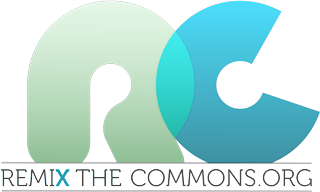
Project “Justice transitionnelle: l’expérience Marocaine” plans to share those extremely important Moroccan experiences about transitional justice and community reparation.
In Morocco, from 1959 to 1999, Former King Hassan II often ruled his country with an iron fist. That period is called as the years of lead in Morocco, during which those who were considered a threat to the regime were subject to a wide range of human rights violations. Thousands were subjected to arbitrary arrest, torture, and enforced disappearance, leaving behind a bitter legacy.
However, starting in the early 1990s, a gradual process of dealing with the past began to take root, culminating most recently in the work of the Moroccan Equity and Reconciliation Commission (Instance Équité et Réconciliation (IER)), established by the successor to the throne, King Mohammed VI.
On January 7, 2004, the IER was created, which is the first truth commission in the Arab world. This also has been hailed internationally as a big step forward, and an example to the Arab world. Since that, the IER has been working on addressing the terrible legacy of this era by investigating some of the worst abuses in Morocco and arranging reparations for victims and their families.
Over the duration of its mandate, the IER has amassed an archive of more than 20,000 personal testimonies from victims and their families, which has been organized in a central database in Rabat. It has conducted a range of meetings, conferences, and seminars around a multitude of issues that are keys to understanding Morocco’s past and present.
It has also taken the monumental step of holding public hearings to give victims a platform from which to share their sufferings. Throughout its work, the Commission has aimed to document, preserve, and analyze the roots of the crisis in an attempt to help Morocco come to terms with its past.
Project Justice transitionnelle: l’expérience Marocaine aims to share videos about this process of transitional justice and community reparation. For Morocco, the Community Reparation Project is a huge project contributed to transitional justice. A total sum of 159 million Dirhams was mobilized and total number of completed projects was 149.
These videos talked about how to preserve memory of victim communities during “the years of lead” in Morocco and what kinds of public hearings took place, in fact those hearings gave the highlight of an extensive process of citizen deliberation, compassion and free expression in Morocco. They also talked about lots of stories about how community reparation project aimed to improve the living conditions of the people in victim communities and empower them. In fact, those materials mainly focused on women and children.
Project Justice transitionnelle: l’expérience Marocaine believes Moroccan experiences in transitional justice as commons are useful and valuable to other countries, especially to Arabic countries have the similar history of transitional justice, such as Iraq, Egypt, Tunisia, Syria, Lebanon, Palestine, Algeria and so on.
As open resources, these documentaries, videos and reports are free to use for the public goods.
Futur development
In the next step, Project Justice transitionnelle: l’expérience Marocaine will keep on sharing more historical videos and materials about experiences in transitional justice, such as the videos of public hearings, the videos of public seminars and conferences, historical pictures and final reports of the community reparation project.
People involved
Ning and Mohamed Leghtas, from Alternatives Forum in Morocco(FMAS) and Portail E-joussour take in charge of this project, which both based in Rabat, Morroco.
Ressources
The project Transitional Justice: the Moroccan experience is financed by the funds of the Equity and Reconciliation Commission (IER)
Contribution to the projet “Justice transitionnelle
Alternatives Forum in Morocco(FMAS) and Portail E-joussour take in charge of this project, which both based in Rabat, Morroco.
